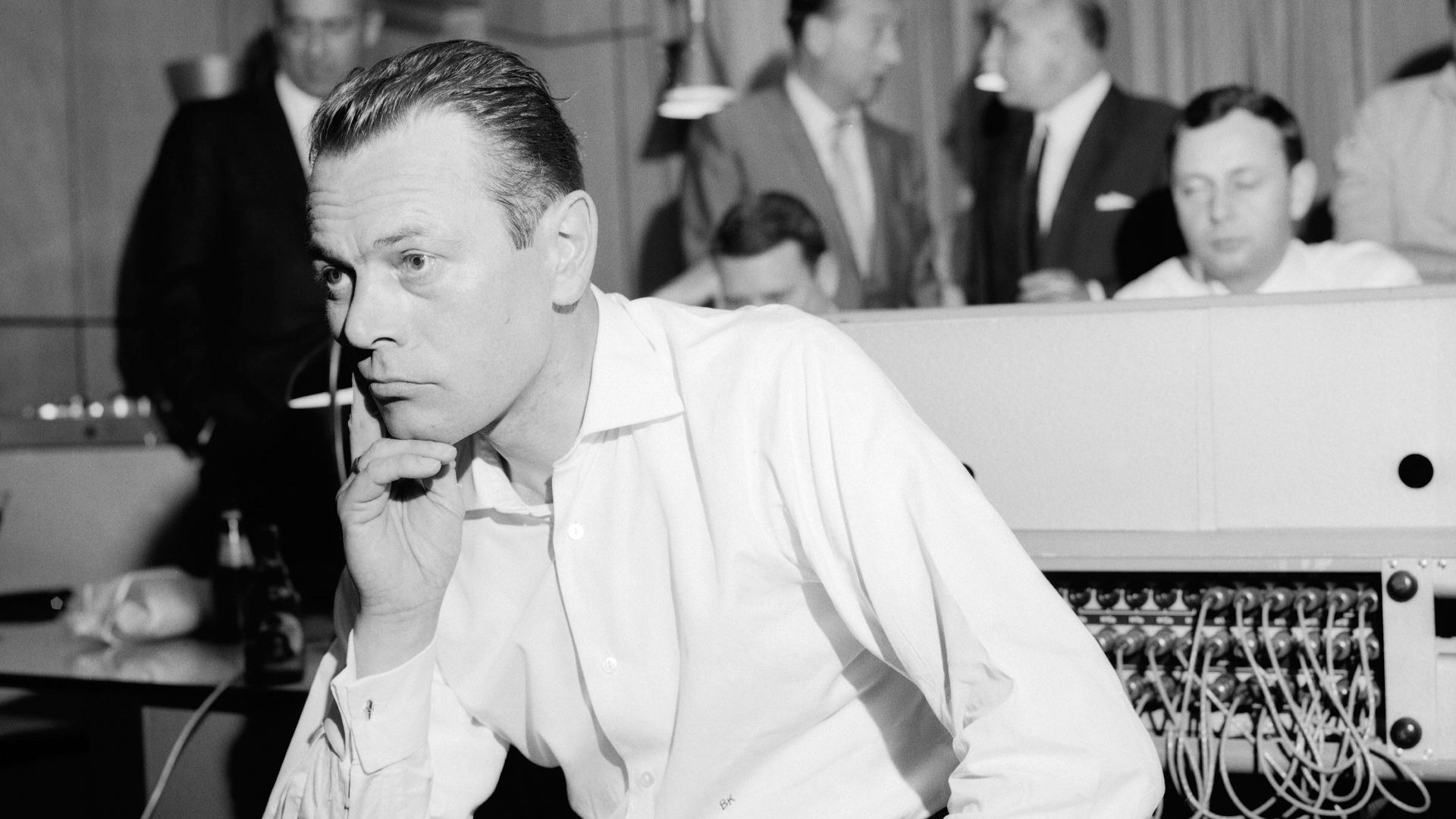In the late spring and early summer of 1961, the world felt on the brink of enormous change. Yuri Gagarin had just become the first man in space, the
US-backed Bay of Pigs invasion had failed in Cuba, causing global tension
to rise even further, Adolf Eichmann’s trial was under way in Jerusalem while Kennedy and Khruschev met for the Vienna summit, just as Rudolf Nureyev was defecting in Paris.
In Hamburg one May night, a 38-year-old record producer, composer and arranger named Bert Kaempfert ducked into the Top Ten Club on the Reeperbahn to watch four young English lads about whom he’d heard good things. Impressed by their energy and the tightness of their performance, Kaempfert thought they were just the band to put behind their fellow Liverpudlian, a singer called Tony Sheridan, at the forthcoming studio recording he’d arranged.
So it was that over two days in June the Beatles and Sheridan trekked to a school concert hall across town where Kaempfert had set up a temporary
studio to record a clutch of cover versions. He had them sign a document
that bound them to Bert Kaempfert Productions for a year: the Beatles’ first recording contract.
Four months later, My Bonnie was released as a single on Polydor Germany with When the Saints Go Marching In on the B-side. Within days of its release a
customer walked into Brian Epstein’s NEMS shop in Liverpool and asked for “the record by the Beatles,” a new name to Epstein. When the next day two young women also asked for My Bonnie, he decided to go and see the four-piece at their Cavern Club residency – and the history of popular music changed forever.
By the end of the year, Epstein had asked for the Beatles to be released early from their commitment to BKP, something Kaempfert was happy to do. After all, while he knew those four scruffy English lads had something, he was too busy with his own music to lose sleep about them moving elsewhere.
It would be an exaggeration to say that Bert Kaempfert discovered the Beatles. He played an important early role in their development, gave them their first recording contract and was indirectly responsible for Epstein discovering them when he did, but churning out chart-busting singles was never high on his list of priorities.
In any case, the fast, percussive sound of the new beat groups was worlds away from the world of lush strings and gentle trumpet melodies in which he felt happiest.
“I want to make music that doesn’t disturb,” he said, the antithesis of rock’n’roll but an ambition that made Kaempfert one of the biggest-selling recording artists in Europe.
When he met the Beatles, Kaempfert had already had a number one hit of his own in the US with Wonderland by Night, a record that knocked Elvis Presley’s Are You Lonesome Tonight? from the top spot and made him the first German to top the American charts.
Elvis clearly did not hold a grudge, however. On the night Kaempfert went
to the Top Ten Club, Elvis’s English version of Kaempfert’s adaptation of a
German folk song Muss i den, released as Wooden Heart, was enjoying a six-week run at number one in the UK after featuring in the 1960 film G.I. Blues.
Five years later, Kaempfert would score his two biggest songwriting hits, with Frank Sinatra recording Strangers in the Night and Al Martino covering an instrumental track that, with added lyrics, became Spanish Eyes, even if it
had been composed with another part of Europe in mind.
“I wrote it one dark and stormy night in northern Germany when the gales
were blowing so hard I thought they would blow the house down,” he said. “I must have been thinking of warmer climes, especially Naples and its weather, because I wrote a piece for strings and mandolin called Moonlight
in Naples. When it arrived in America they put words to it and called it Spanish Eyes. I phoned New York and told them, hey, that music is Italian, not Spanish, and they just said, who cares – it’s a hit.”
Others who covered Kaempfert’s work included Dean Martin, Ella Fitzgerald, Shirley Bassey, Sarah Vaughan and Nat King Cole, but it was the string of albums released under his own name featuring his trademark swirling strings, prominent bass lines and solo brass instruments taking the melodies that made his name, selling more than 150 million copies around the world. Not bad for a boy whose early ambitions stretched no further than playing music to passengers on cruise liners.
In 1928, young Berthold Kaempfert was knocked down and injured by a taxi on a Hamburg street, an incident the taxi company conceded was their fault. With the compensation, Berthold’s mother bought a piano, teaching the five-year-old the basics to pass the time while his father, a ship’s steward, was away at sea.
Living in one of Europe’s busiest ports, a key hub for transatlantic passenger liners, Bert Kaempfert grew up to the sound of steam whistles and colourful
funnels glimpsed between buildings. It was as if he lived at the gateway to the world, vast ships like floating cities nosing out of the port destined for impossible glamour and adventure. If he could join one of the ships as a musician he would see places of which he could only dream while doing what he loved.
After graduating from the Hamburg School of Music, Kaempfert joined a local big band playing saxophone and accordion until the war intervened, posting him to the island of Sylt, close to the border with Denmark, as a member of a naval band.
After the war he found himself learning the musician’s trade on the US servicemen’s club circuit before returning home to Hamburg, where, as
well as fronting his own orchestra, Kaempfert became a composer and arranger for the German public broadcaster Nordwestdeutscher Rundfunk, as well as a producer and talent spotter for Polydor.
His work in the recording industry taught Kaempfert to incorporate popular new styles into his music without losing the lush-stringed stylistic core of his appeal – an early 1970s venture into disco brought gushing praise from Isaac Hayes himself for an adaptation of the theme from Shaft. With each album he tested himself while retaining the unique sound that earned him fans across the world.
At the dawn of the 1980s he seemed destined for even greater heights. On June 16 1980 he was called back for four encores by a sell-out crowd at the Royal Albert Hall, having to plead “I would love to go on but I’ve run out of music”.
Five days later he was dead, suddenly, from a stroke at his holiday home in
Majorca, in view of the ocean that had first fired his childhood dreams with
ships as elegant and gently graceful as the music that would make his fortune.
“Rock groups may sweat and jazz bands perspire,” wrote one concert reviewer in 1974. “Bert Kaempfert only glows.”




